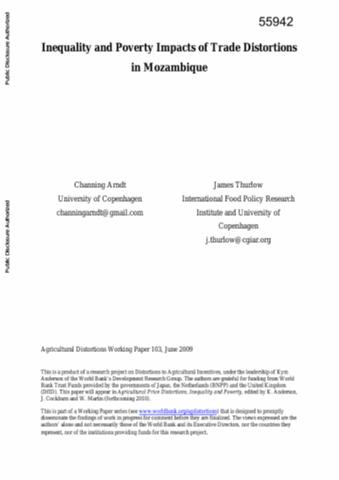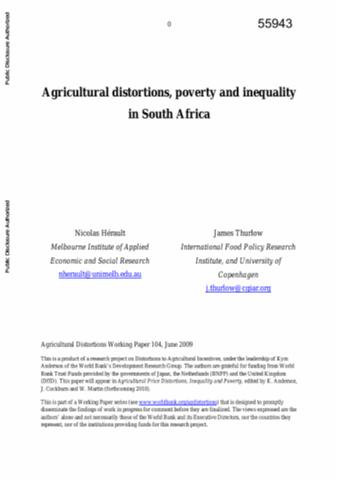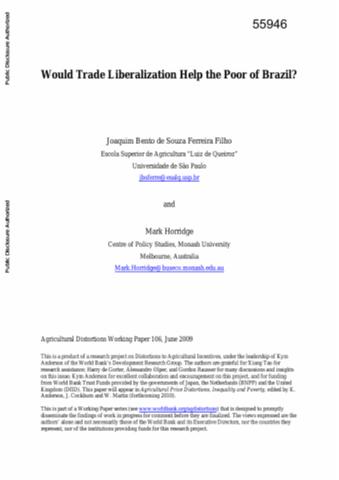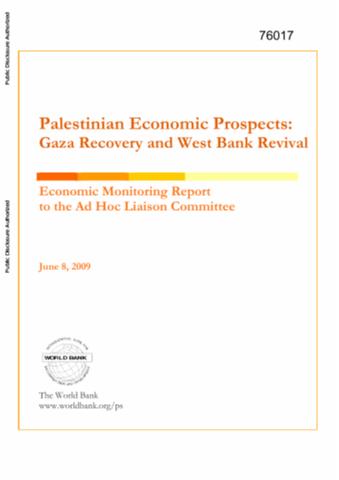The World Bank is a vital source of financial and technical assistance to developing countries around the world. We are not a bank in the ordinary sense but a unique partnership to reduce poverty and support development. The World Bank Group has two ambitious goals: End extreme poverty within a generation and boost shared prosperity.
- To end extreme poverty, the Bank's goal is to decrease the percentage of people living on less than $1.25 a day to no more than 3% by 2030.
- To promote shared prosperity, the goal is to promote income growth of the bottom 40% of the population in each country.
The World Bank Group comprises five institutions managed by their member countries.
The World Bank Group and Land: Working to protect the rights of existing land users and to help secure benefits for smallholder farmers
The World Bank (IBRD and IDA) interacts primarily with governments to increase agricultural productivity, strengthen land tenure policies and improve land governance. More than 90% of the World Bank’s agriculture portfolio focuses on the productivity and access to markets by small holder farmers. Ten percent of our projects focus on the governance of land tenure.
Similarly, investments by the International Finance Corporation (IFC), the World Bank Group’s private sector arm, including those in larger scale enterprises, overwhelmingly support smallholder farmers through improved access to finance, inputs and markets, and as direct suppliers. IFC invests in environmentally and socially sustainable private enterprises in all parts of the value chain (inputs such as irrigation and fertilizers, primary production, processing, transport and storage, traders, and risk management facilities including weather/crop insurance, warehouse financing, etc
For more information, visit the World Bank Group and land and food security (https://www.worldbank.org/en/topic/agriculture/brief/land-and-food-security1
Resources
Displaying 4721 - 4725 of 4907Inequality and Poverty Impacts of Trade Distortions in Mozambique
Although Mozambique has considerable agricultural potential, rural poverty remains extremely high. This paper examines the extent to which global and domestic price distortions affect agricultural production and national poverty. The author develops a computable general equilibrium (CGE) and micro-simulation model of Mozambique that is linked to the results of a global model. This framework is used to examine the effects of eliminating global and national price distortions.
Agricultural Distortions, Poverty, and Inequality in South Africa
South Africa has rapidly reduced trade barriers since the end of Apartheid, yet agricultural production and exports have remained sluggish. Also, poverty and unemployment have risen and become increasingly concentrated in rural areas. This paper examines the extent to which remaining price distortions, both domestic and foreign, are contributing to the underperformance of the agricultural sector vis-a-vis the rest of the economy. The author draws on a computable general equilibrium (CGE) and micro-simulation model of South Africa that is linked to the results of a global trade model.
Would Trade Liberalization Help the Poor of Brazil?
This paper addresses the potential effects of world agricultural trade liberalization on poverty and regional income distribution in Brazil, using an inter-regional applied general equilibrium (AGE) and a micro-simulation model of Brazil tailored for income distribution and poverty analysis by using a detailed representation of households. The model distinguishes 10 different labor types and has 270 different household expenditure patterns. Income can originate from 41 different production activities located in 27 different regions in the country.
Palestinian Economic Prospects
In its report to the September 22, 2008 meeting of the Ad Hoc Liaison Committee (AHLC), the World Bank noted that the Palestinian Authority (PA), Israel, and the international donor community made some progress on the three parallel conditions for Palestinian economic revival, albeit to different degrees. The report notes the dramatic impact of Israel s recent three-week offensive in Gaza and analyzes the variety of recovery and reconstruction schemes being explored by the donor community.
The Evolution of the World Bank’s Land Policy: Principles, Experience, and Future Challenges
This article examines the evolution of policy recommendations concerning rural land issues since the formulation of the World Bank’s “Land Reform Policy Paper” in 1975. That paper set out three guiding principles: the desirability of owner-operated family farms; the need for markets to permit land to be transferred to more productive users; and the importance of an egalitarian asset distribution.










